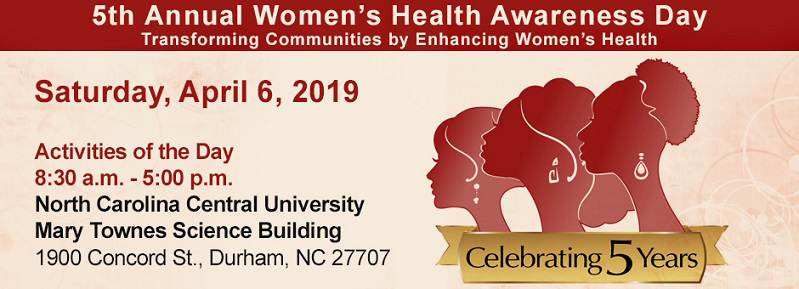Obesogens: Understanding Their Contributions To Weight Gain
The topic of obesogens will be discussed further during the 5th Annual Women’s Health Awareness, a wellness conference that is open to all women of the Triangle area and surrounding counties. This is a free conference whose purpose is to increase health awareness, environmental health literacy and health equity by providing a wide range of health seminars, environmental health information sessions, health services, health resources and on-site health screenings.
Obesity is a global pandemic. The Centers for Disease Control and Prevention reports that 39.8% of adults in the US are obese. The highest prevalence of obesity can be found among Hispanics (47%) and African Americans (46.8%). These statistics are alarming because obesity can result in chronic disease, including heart disease, stroke, type 2 diabetes and cancer.
In today’s society, there are numerous weight loss and diet trends that aim to help consumers lose weight. From cleansing teas/diets (e.g. keto) to workout classes, people are investing in these weight loss methods in an effort to shed pounds. The common perception is that the formula to losing weight is consistent exercise accompanied by a healthy diet.
However, researchers have discovered that a key component is being left out of the weight loss equation: OBESOGENS. Dr. Bruce Blumberg, author of The Obesogen Effect, describes obesogens as chemicals in our environment that promote weight gain. While he acknowledges that exercise and healthy eating are still extremely important, he explains that awareness of obesogens is very important as they can be traced in our food, homes, work offices and even in medicine.
How do obesogens operate? Obesogens do three main things:
- They disrupt normal development and balance of fat metabolism;
- They can reprogram stem cells in the body to develop into more fat cells; and
- They can alter how your body responds to dietary choices and handles calories.[1] Of major concern is the fact that the effects of obesogens, such as chronic disease, can be passed on to future generations.[2] This underscores the importance of the community, especially pregnant women and those that plan to become pregnant, understanding what obesogens are, how they function and where they can be found.
The goal of obesogen research is not to diminish the importance of maintaining a balanced diet and regular exercise in weight loss, but rather to ensure that obesogens and their effects are included in weight loss and health conscious conversations.
Women’s Health Awareness 2019
 The topic of obesogens will be discussed further during the 5th Annual Women’s Health Awareness, a wellness conference that is open to all women of the Triangle area and surrounding counties. This is a free conference whose purpose is to increase health awareness, environmental health literacy and health equity by providing a wide range of health seminars, environmental health information sessions, health services, health resources and on-site health screenings.
The topic of obesogens will be discussed further during the 5th Annual Women’s Health Awareness, a wellness conference that is open to all women of the Triangle area and surrounding counties. This is a free conference whose purpose is to increase health awareness, environmental health literacy and health equity by providing a wide range of health seminars, environmental health information sessions, health services, health resources and on-site health screenings.
The event will take place on Saturday, April 6, 2019 on the campus of North Carolina Central University from 8:00 am – 5:00 pm. The National Institute of Environmental Health Sciences is the lead sponsor with co-sponsors Durham Alumnae Chapter of Delta Sigma Theta Sorority, Inc., the Durham Alumnae Delta House, Inc., and North Carolina Central University Department of Health Education.
In the spirit of keeping the obesogen conversation going, two environmental health education sessions will be offered. The first session, “Do These Chemicals Make Me Look fat?”, will be led by Dr. Bruce Blumberg, from the University of California Irvine. During the session, he will be diving into the topic of obesogens and discussing the ways they impact our everyday lives.
The second session, “Invisible Dangers: Practical Ways to Reduce Everyday Exposures and Improve Health,” will be led by Dr. Robert M. Sargis, from the University of Illinois at Chicago, and Dr. Bruce Blumberg. During this session, they will explore the ways chemicals in the environment play a prominent role in the triggering and severity of type 2 diabetes.
Pre-registration ended on March 15, 2019, however, on-site registration is available. For more information about Women’s Health Awareness Day 2019 go to www.niehs.nih.gov/whad or call 984-287-4414.
[1] Bruce Blumberg, The Obesogen Effect (New York: Grand Central Life & Style), 1.
[2] Ibid, 4.


